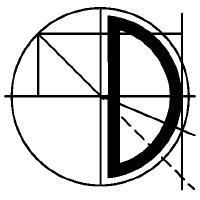Abstract
Energy efficiency and power consumption of data centers can be improved through conscientious placement of workloads on specific servers. Virtualization is commonly employed nowadays, as it allows for dynamic reallocation of work and abstraction from the concrete server hardware. The ability to predict the power consumption of workloads at different load levels is essential in this context. Prediction approaches can help to make better placement choices at run-time, as well as when purchasing new server equipment, by showing which servers are better suited for the execution of a given target workload. In existing work, power prediction for servers is limited to non-virtualized contexts or it does not take multiple load levels into account. Existing approaches also fail to leverage publicly available data on server efficiency and instead require experiments to be conducted on the target system. This makes these approaches unwieldy when making decision regarding systems that are not yet available to the decision maker. In this paper, we use the readily available data provided by the SPEC SERT to predict the power consumption of workloads for different load levels in virtualized environments. We evaluate our approach comparing predicted results against measurements of power consumption in multiple virtualized environment configurations on a target server that differs significantly from the reference system used for experimentation. We show that power consumption of CPU and storage loads can be reliably predicted with a prediction error of less than 15% across all tested virtualized environment configurations.


